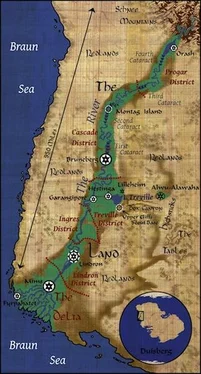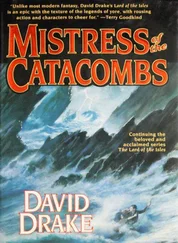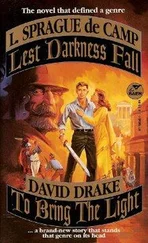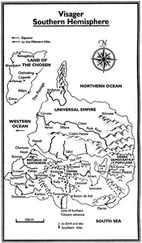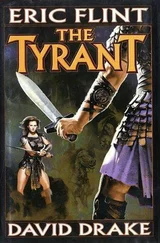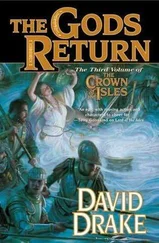David Drake - The Heretic
Здесь есть возможность читать онлайн «David Drake - The Heretic» весь текст электронной книги совершенно бесплатно (целиком полную версию без сокращений). В некоторых случаях можно слушать аудио, скачать через торрент в формате fb2 и присутствует краткое содержание. Жанр: Фантастика и фэнтези, на английском языке. Описание произведения, (предисловие) а так же отзывы посетителей доступны на портале библиотеки ЛибКат.
- Название:The Heretic
- Автор:
- Жанр:
- Год:неизвестен
- ISBN:нет данных
- Рейтинг книги:3 / 5. Голосов: 1
-
Избранное:Добавить в избранное
- Отзывы:
-
Ваша оценка:
- 60
- 1
- 2
- 3
- 4
- 5
The Heretic: краткое содержание, описание и аннотация
Предлагаем к чтению аннотацию, описание, краткое содержание или предисловие (зависит от того, что написал сам автор книги «The Heretic»). Если вы не нашли необходимую информацию о книге — напишите в комментариях, мы постараемся отыскать её.
The Heretic — читать онлайн бесплатно полную книгу (весь текст) целиком
Ниже представлен текст книги, разбитый по страницам. Система сохранения места последней прочитанной страницы, позволяет с удобством читать онлайн бесплатно книгу «The Heretic», без необходимости каждый раз заново искать на чём Вы остановились. Поставьте закладку, и сможете в любой момент перейти на страницу, на которой закончили чтение.
Интервал:
Закладка:
David Drake, Tony Daniel
The Heretic


“Yesterday won’t be over until tomorrow
and tomorrow began ten thousand years ago.”
— William Faulkner, Intruder in the DustPART ONE:
1
“Bows and muskets, blood and dust-” six-year-old Abel Dashian sing-songed as he played in the yard of the temple storehouse. The afternoon was hot and humid, and the air was still.
He jumped from capstone to capstone upon the carved blocks of reddish-yellow stelae that surrounded the storehouse, teetering perilously, gloriously, on the brink of a fall to the hard-packed dirt below.
Teetering, yes-but never quite falling. Abel knew he would make his next jump, and the next. He liked that he was good at stuff like this, better than most boys his age.
“Flint and powder, broken bones-”
Nearby was the pile of baggage he was supposed to be watching while his father checked in with the district’s ruling cleric, Prelate Zilkovsky. Abel and his father had been in Hestinga for several days, having hooked up with a fast caravan to arrive earlier than expected. His father had used the extra days of leave to acquire a dwelling near the military compound, to find a nanny for Abel, and generally to set up housekeeping. Abel had gotten to know some of his new neighborhood, but spent most of his time unpacking his cache of personal belongings, including the treasured locks of his dead mother’s hair.
Today was the first official visit Abel’s father had made to the district priest, and custom required that he present his family-which was, in his case, only Abel-when he reported in. His father, whose name was Joab, had brought along the official deliveries he’d been charged with transporting from the capital to Hestinga.
The day before, Abel had finally given in to his curiosity, pulled back the large reed mat that covered the stack of items in a corner of the common room at his home, and taken a peek at this material. He had no idea what most of it was, but he had noticed a basket full of blank papyrus scrolls. Abel loved to draw, and spent a few moments lusting after them. Then he’d turned his attention to a carefully wrapped case with something hard bound within in it-carefully wrapped, but not so hard to open, even for smaller fingers. The case revealed a shiny new set of obsidian sacrificing knives. His father had walked in from watering the donts and caught him just before Abel made the major mistake of touching one of the knives.
“These were sent to the district prelate by the Abbot of Lindron himself,” his father said. “How do you think it would look if Zilkovsky found a bunch of fingerprints all over them?”
Seeing Abel’s downcast eyes, his father had taken pity upon him and given Abel one of his old throwing knives as a consolation prize. Abel had spent a happy afternoon practicing with it against a wooden post.
Today, Abel had been put in charge of watching over this baggage while his father went in to make his initial presentation, and he was determined to keep himself away from the sacrificing knives, which he still longed to play with.
I want to see one of those knives split papyrus, Abel thought. A friend back in Lindron had seen a prelate do that once with an obsidian blade. No. Absolutely cannot touch. Father will whip me ragged.
So he’d looked around for something to distract himself, and soon noticed an interesting picture that was carved on the sides of the standing stones that ringed a nearby large building. He’d wandered over to see what it was.
A carnadon. A dangerous river beast. And a really good likeness, too. Carnadons were Abel’s favorite animals.
The carnadon carved on these stelae was a symbol the priesthood liked to use-he’d seen it near all the holy sites in Lindron-but he wasn’t exactly sure what it meant.
Each stela had a carnadon relief carving on it, and who could resist climbing up on top and jumping from stone to stone to get away from them?
Not Abel Dashian, that was for sure.
Each of the roughhewn stone uprights was rectangular, flat on top, and wide enough for a boy to stand squarely upon with a couple of steps to spare. They were squat, planted deep into the sandy ground, rising to about the height of a tall man’s chest. The gap between the stelae was perhaps a stride and a half, which was a length that Abel could span with a jump-barely.
“I’m the one you’ll never catch,” he chanted and leaped through the air. He landed on the next stone, took a stutter step, and leaped again, continuing the ancient jingle, a song his mother had sung to him on the cradleboard and then, because he often requested it, through the years up until her death. “I’m the one who catches you .”
Land on a stone top, leap, land, and leap again.
“You don’t scare me, carnadon. Beer and barley, lead and copper, I’m the Carnadon Man!”
Abel pretended he was crossing the River at one of its rare fording points and must leap from rock to rock to avoid being snatched and eaten. The carnadons lived in hunting packs thick along the riverbanks near the wide spots in the water’s flow. River carnadons were creatures horned with scale. They walked about on land with small legs, but in the water they possessed a powerful swimming tail. Their main feature, however, at least by Abel’s lights, was a large mouth equipped with a jaw on a flexible hinge that could open wide and swallow a young boy whole.
Abel was both terrified and spellbound by River carnadons. When he’d lived in Garangipore as a very young child, one of his first memories was of watching from the terrace porch of the officer’s residence where his family dwelled as carnadons wallowed on the riverbank below. Then in Lindron, his father had taken him to see the Great Tabernacle moats, which were full of well-fed carnadons kept as pets by the high priests.
He’d watched an afternoon feeding and seen the creatures swallow chunks of meat as big as barrels without once chewing. In the River, the creatures made their grisly living on fish and weak land creatures. In Garangipore, he’d seen one bring down a young herbidak that visited the riverbanks to graze. Carnadons also didn’t mind feasting on the occasional villager when they got the chance-a fact which his mother had never let him forget.
I won’t forget, Mamma.
“Teeth all snapping, tails all whapping, try to bite me if you can!”
Even though Abel was only six, he knew that the stone from which the stelae were made was not local. It was rock from the desert wastes beyond the River: the Redlands. Here in the valley, the natural stone was always black or dark brown like river mud unless you dug a hole very deep. You never saw buildings made of stone like this in Lindron, the city where Abel had lived for the past year, and the city where his mother had died. But here in Hestinga, near the Valley Escarpment, there were official buildings and even a few houses made from the red stone.
“You can’t catch me, I’m the Carnadon Man!”
Abel completed his second circuit of the storehouse yard and sprang down. He took the landing with bended knees and rolled as his father had taught him Scouts did when jumping from a rooftop or a cliff. He came up facing the door to the building the stones circled. It had the look of some kind of storehouse, maybe an old granary. The structure was made of the same Redlands stone as the stelae, but the door was of thick-plaited river cane and looked solid, many layers thick. A pile of windblown sand had built up at its base. There were no hinges on the door that Abel could see.
Читать дальшеИнтервал:
Закладка:
Похожие книги на «The Heretic»
Представляем Вашему вниманию похожие книги на «The Heretic» списком для выбора. Мы отобрали схожую по названию и смыслу литературу в надежде предоставить читателям больше вариантов отыскать новые, интересные, ещё непрочитанные произведения.
Обсуждение, отзывы о книге «The Heretic» и просто собственные мнения читателей. Оставьте ваши комментарии, напишите, что Вы думаете о произведении, его смысле или главных героях. Укажите что конкретно понравилось, а что нет, и почему Вы так считаете.
